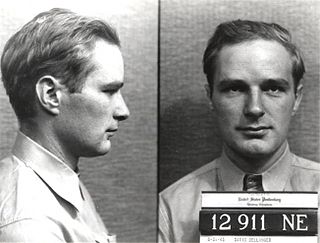A Quote by Carl Jung
Observance of customs and laws can very easily be a cloak for a lie so subtle that our fellow human beings are unable to detect it.
Related Quotes
Observance of customs and laws can very easily be a cloak for a lie so subtle that our fellow human beings are unable to detect it. It may help us to escape all criticism, we may even be able to deceive ourselves in the belief of our obvious righteousness. But deep down, below the surface of the average man's conscience, he hears a voice whispering, 'There is something not right,' no matter how much his rightness is supported by public opinion or by the moral code.
Literature gives us models of living human beings who may not agree with us and even be our enemies. D. H. Lawrence said that the purpose of literature was to expand our sympathies. To be a human being is to be in a state of tension between your appetites and your dreams, and the social realities around you and your obligations to your fellow man. And this conflict cannot be easily reconciled. The tension is always there as a kind of a pain in the human condition.
In prison, the gloves were off, the comforting rhetoric and rationalization were absent. To use a phrase from Plato, I saw the laws of our society 'writ large' - its flagrant inequalities of opportunity and disastrous results, its contempt for vast categories of our fellow human beings, its reliance on institutional violence.
A life without a lonely place, that is, a life without a quiet center, easily becomes destructive. When we cling to the results of our actions as our only way of self-identifiction, then we become possessive and defensive and tend to look at our fellow human beings more as enemies to be kept at a distance than as friends with whom we share the gifts of life.
A man develops a subtle power as a result of the strict observance of celibacy for twelve years. Then he can understand and grasp very subtle things which otherwise elude his intellect. Through that understanding the aspirant can have direct vision of God. That pure understanding alone enables him to realize Truth.



































